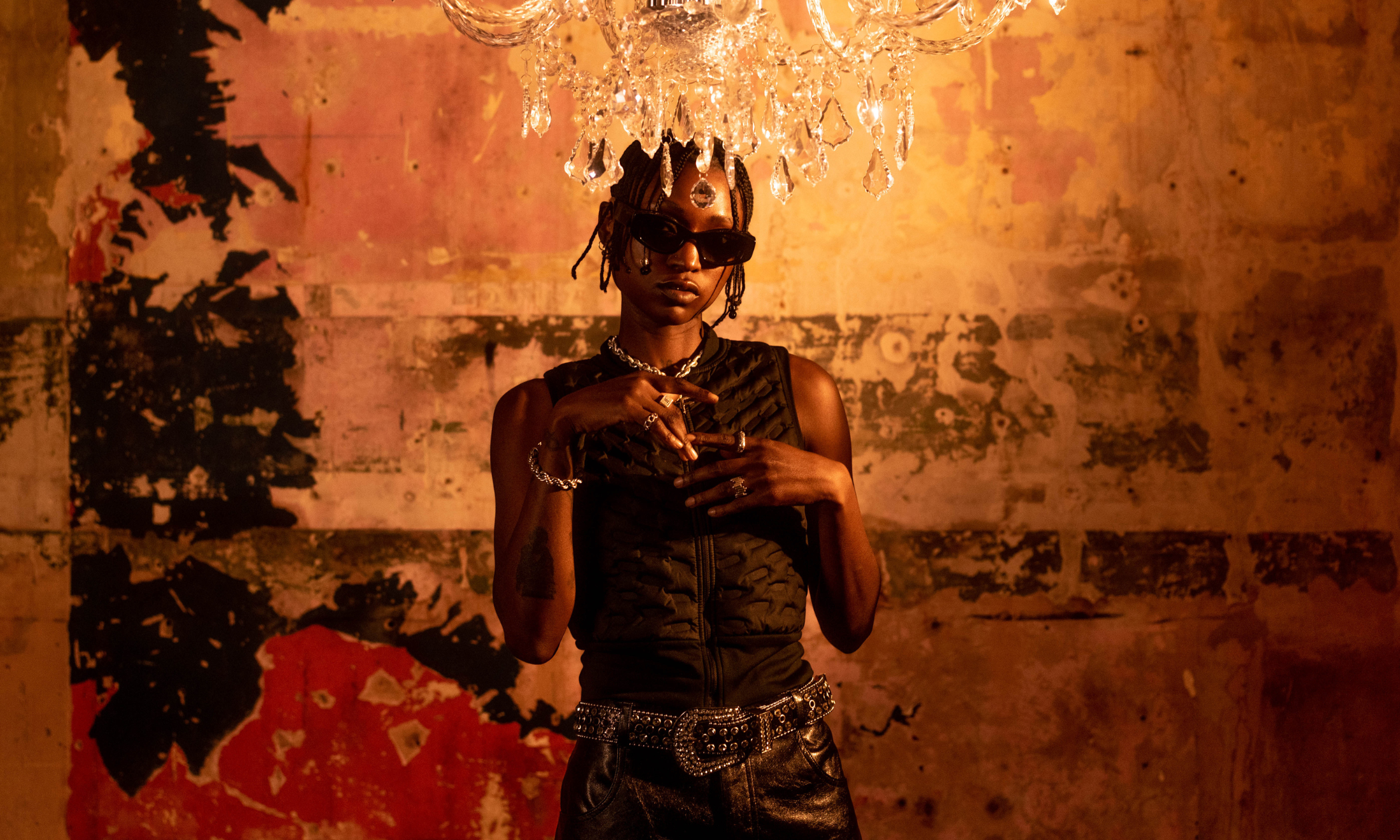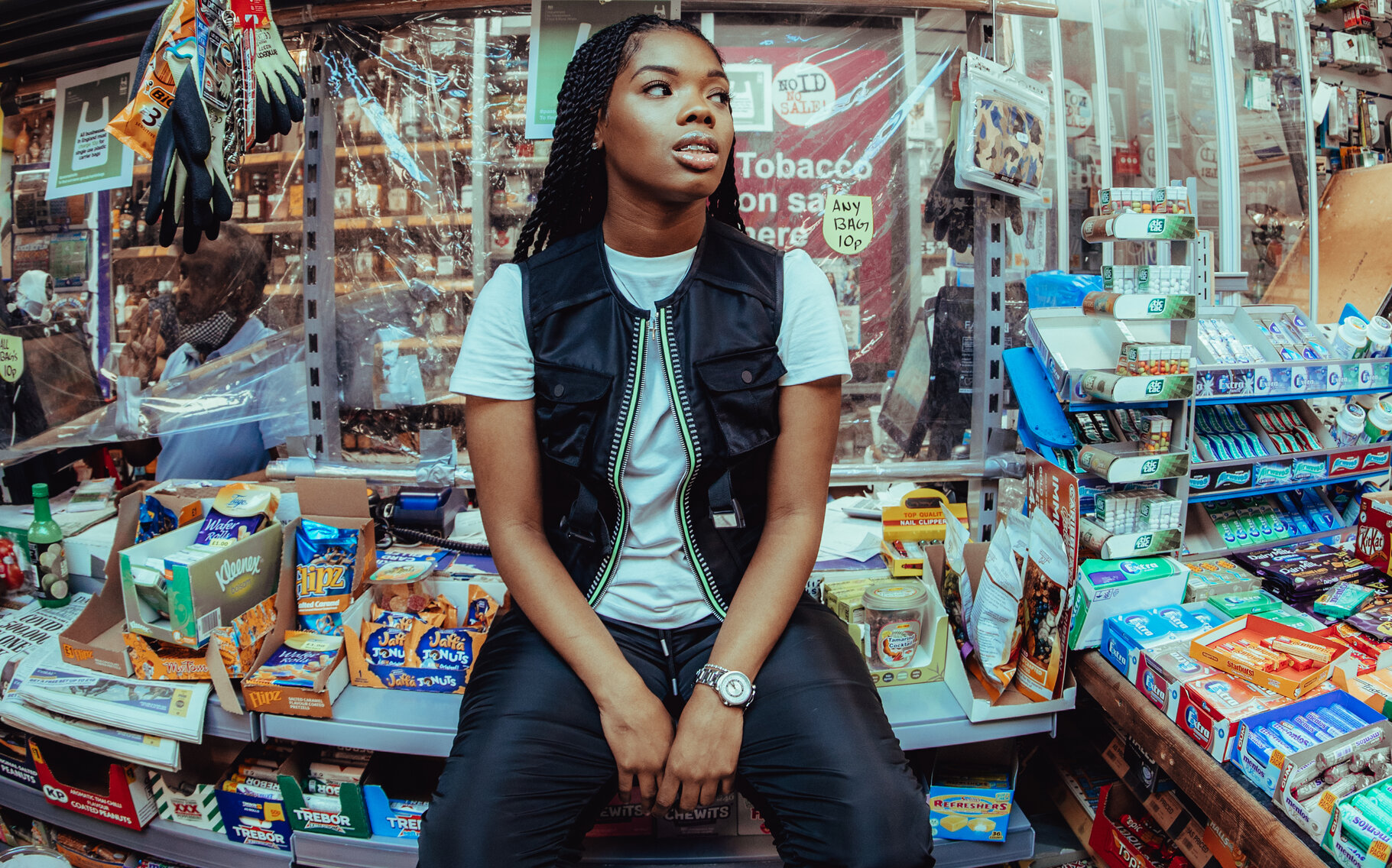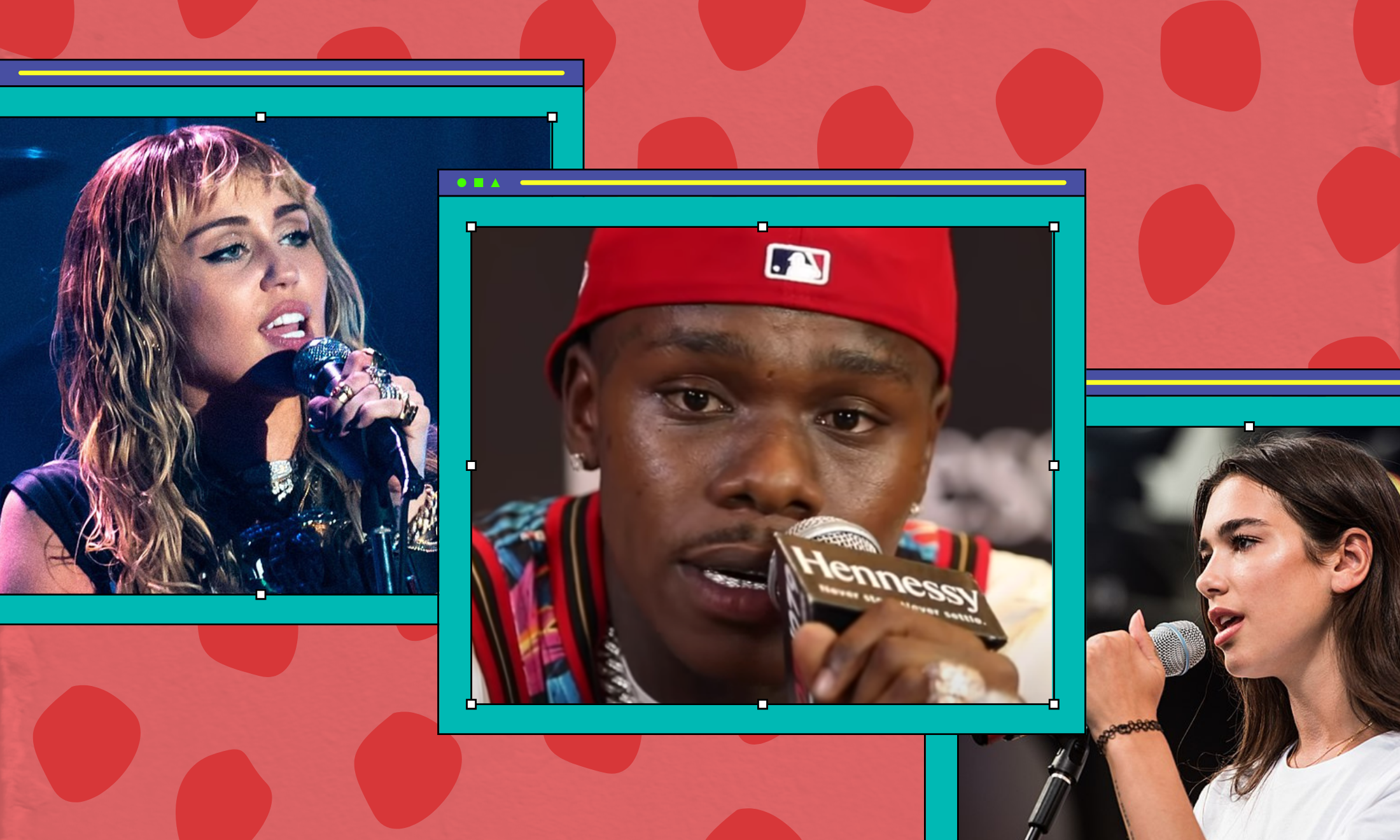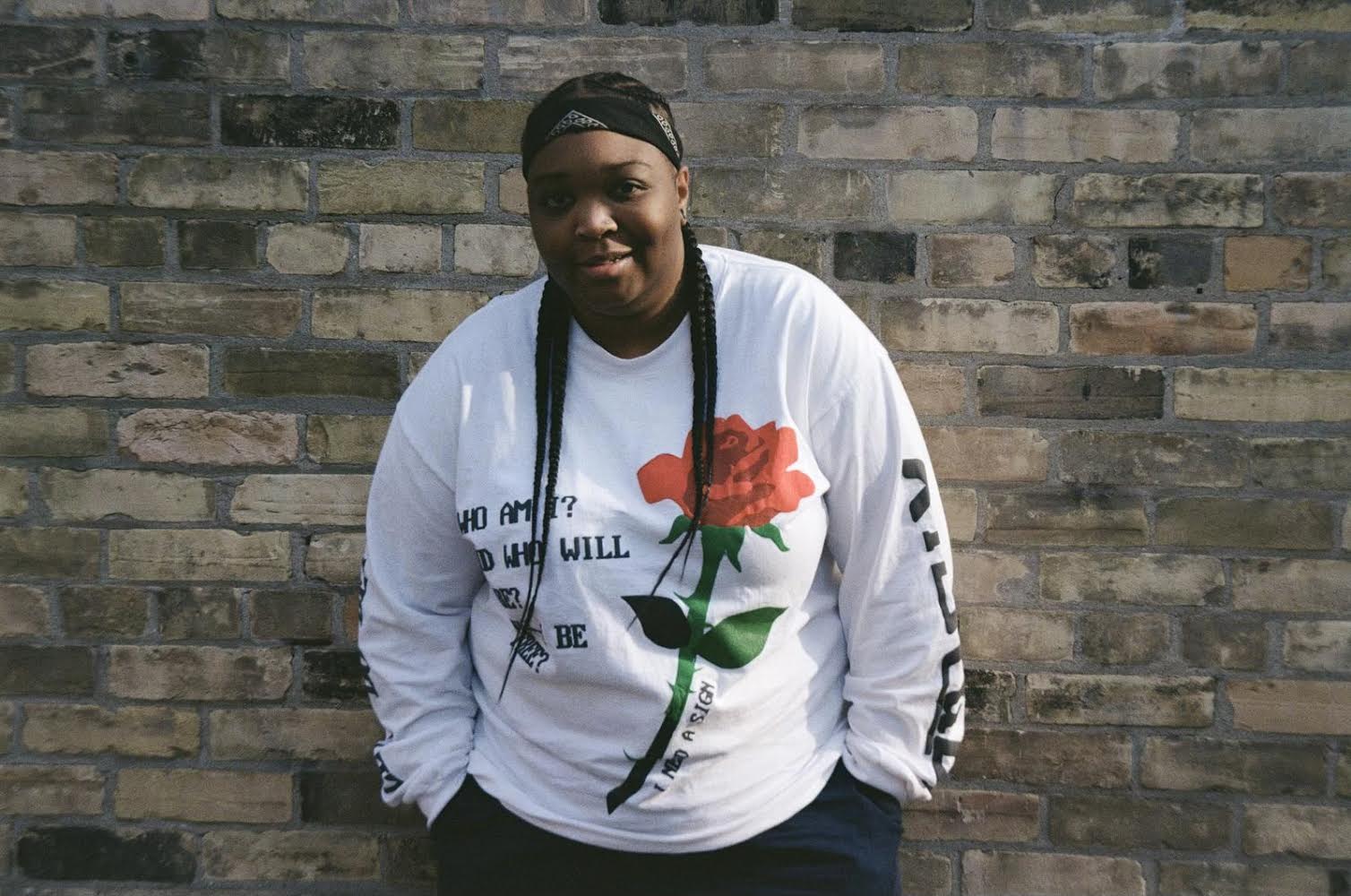
Meet switchbitch, the anonymous Filipina duo rapping against Duterte
The duo are fiery and frenetic, making music that calls out their government while also creating space for soft sapphic love songs.
Purple Romero
17 Feb 2022
switchbitch’s music hit the masses at a time of anger and uncertainty – in the midst of one of the longest lockdowns in the world and right after the passage of the Philippines’ Anti-Terrorism law on 3 July, 2020, which human rights advocates warned is just another weapon to silence the critics of President Rodrigo Duterte.
“We were honestly scared of releasing our music at this time, but deciding not to is an act of surrendering ourselves to this kind of system”
“The first track we released was right after the Anti-Terror bill was signed into law,” the pair explain (for safety reasons, switchbitch want to keep their identities anonymous, so asked that we refer to them as their musical persona). “Anyone can easily be a target of government-sanctioned threats and killings. We were honestly scared of releasing our music at this time, but deciding not to release our music is an act of surrendering ourselves to this kind of system.”
As elections loom in the Philippines, the duo – who sounded simultaneously gregarious and wry over an online call – said they hoped to release a new track before the country’s elections this May, but stressed that the song will not just be about the elections per se. “Even if people vote in the elections, if the system will not change, then nothing will really happen,” they said.
Their first single, ‘Marx Beats Challenge’, was a fitting introduction to the verve and spirit of switchbitch’s experimental hip-hop. The track was followed by two EPs, 2020’s Pasintabi – a Filipino expression that usually predicates a statement others would find disagreeable – and 2021’s Lalamunan – which translates as throat. Lalamunan was named as one of Asia’s 20 best hip-hop albums of 2021 by HipHopDX (one of the biggest hip-hop publications in the world). It was a feat that brought pride and a new energy of excitement for Filipino fans like me.
Both collections contained tracks that examine the nuances of what it means to be political, with beats that range from dystopian to screwed, with some songs teasing smooth transitions from rapid-fire rap to slowed-down R&B tempos.
Their rage and scrutiny of society comes with the appreciation of love. The queer duo also rap about sapphic relationships, something that isn’t usually heard of in a local music scene dominated by heteronormative narratives. This deviation places switchbitch right into the culture of Filipino progressive music, which is known for challenging social norms and questioning stereotypes in the society.
We spoke with switchbitch about politics, K-pop and the pitfalls of queer media.
gal-dem: You criticised the Duterte administration in your songs, from its response to the pandemic to its reported hostility and attacks toward its critics. Why did you decide to rap about this and how risky do you think this move is?
switchbitch: We did not really intend to focus on criticising the government, but it was inevitable. Coming from very personal experiences in everyday life, it is inevitable to critique the current administration because of its direct impact on our lives. We recognise that issues we face every day are rooted in (more aptly, produced by) the economic and political climate, whose power is maintained by violent or fascist approaches through killings. Hence, there is always a risk of making music that condemns the government.
You caught the attention of K-pop stans with your song ‘Kang Seulgi’ (named after a member of K-pop group Red Velvet. The track talked about two girls exploring potential romance between them. How important is it to sing about sapphic love in Filipino hip-hop? Why were there also references to the K-pop artist?
We personally think it’s both really important to create queer media, and to popularise genuine queer culture amongst the sea of macho-feudal Philippine culture; and not important at all. Important because queer, sapphic and feminist culture has always been revolutionary in its history, challenging norms and fighting for equal rights. Not important at all because art production and popular culture especially in the Philippines has always been heavily based on economic stature.
For the K-pop reference, one of us is personally a huge Red Velvet stan, particularly of Kang Seulgi who is her ultimate bias. She personally thinks that comparing her partner to Kang Seulgi is the highest compliment she can give.
“People love to celebrate women in power, with the whole girl boss/boss bitch dynamic, but basing on gender alone is narrow and inadequate”
In your song ‘Atta girl/Ate Gurl’ (older girl) there was a line which says that being an “Ate Gurl” is not based on physiological makeup. Can you explain what you mean with this?
‘Ate Gurl’ implies a biological conception of a female, but we use ‘Ate Gurl’ as an inclusive term to challenge gender constructs. Identifying oneself as a ‘female’ does not automatically mean that one is an ally. People love to celebrate women in power, with the whole girl boss/boss bitch dynamic, but basing on gender alone is narrow and inadequate. ‘Ate Gurl’ then becomes an inclusive term regardless of gender. This statement encourages us to be critical of our analysis and avoid pseudo-progressive takes.
Your album Lalamunan was named by HipHopDX as one of the 20 best albums in Asia in 2021. What do you think of this achievement and what does this feat mean for you and for women in hip-hop in general?
To be on the same list as the likes of BIBI and Calix makes us really ecstatic, but it’s also a challenge for us to learn more and do justice to the work of our producers. We are very thankful for this achievement and attribute this to our producers and collaborators, Inkyu Demon, AHJU$$I, Moshi Moshi Defect!, MALLWARE, slumsies and friends who’ve supported us even if we’re really just babies in this craft.
It would be naive and tokenistic to think that this achievement would make any difference for women in hip-hop, as art production and consumption has always been driven by economic power as mentioned earlier.
In 10 years, where do you envision switchbitch to be?
Hopefully in 10 years, switchbitch wouldn’t be ranting about the same government atrocities in various faces, but singing of the victories of the mass movement.
You can listen to and buy switchbitch’s music via Bandcamp.








